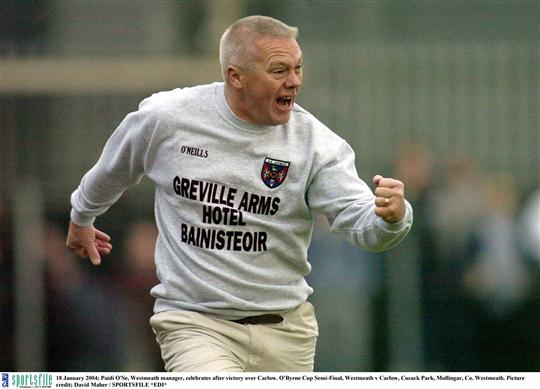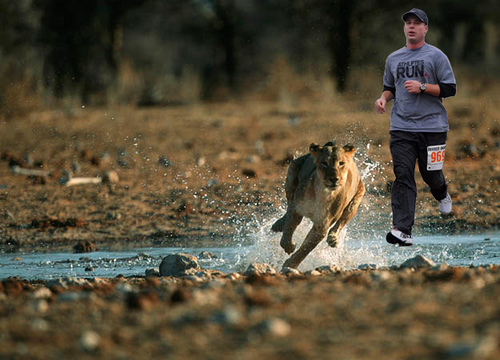Whether you's like to get fit, eat better, live better or get the shift more often, here are just a few tips to help you achieve everything you want in 2015..
Break your New Year's Resolutions down, make them specific and stop calling them resolutions
The first step to achieving your new year's resolutions is to stop looking at them as resolutions and to start treating them as goals. Change your 'get fit' or 'travel more' plans to specific, attainable objectives, such as 'cut my weight down by 10%' or 'visit a South American country this August.'
Then break these down into smaller, more short term goals. This is absolutely key as
a) it sets out a road map of how you will achieve your overall aim and
b) achieving these short term goals will keep you motivated.
I hope this is a useful template today as you plan for success in 2015 pic.twitter.com/DeW1yUPD3B
— Enda McNulty (@Enda_McNulty) December 31, 2014
Former Irish athlete David Gillick has a brilliant piece on the RTÉ website regarding this aspect, and in particular, the importance of the road map:
I was at a stage of making a decision regarding my training set-up and Enda [McNulty] simply asked me what my goals were. I replied with, “I want to run under 45.5 seconds for the 400m.” He asked how I was going to do that. “Ehh train harder,” I replied uncertainly.
The penny dropped, I was solely focusing on the outcome, not the process. Over the next few years I started to set my goals and then take a step back and look into how I was going to achieve it.
This kind of mapping can also help you realise that goals you thought were not achievable are actually within reach. How do you eat a whale? One bite at a time.
Understand your motivators

Reason no.2 of why you won't keep your new year's resolutions: you haven't sat down and analysed what motivates you. There's no point in setting goals if you haven't a plan to keep yourself motivated. Why do you want to lose weight? Why do you need more money?
Add reinforcements to your plan and it will make it a lot easier to drag yourself out of bed before work for that run. Maybe even change your main goal to something you want to do and that requires you to get fit.
Now all of a sudden you have to go for that run in the morning not just to get fit but to get in shape in order for you to be able climb a moutain or whatever your vision is.
Also, TedTalks. When you feel like giving up, a bit of American enthusiasm will set you on the right track again.
https://www.youtube.com/watch?v=Cpc-t-Uwv1I
It's not a year, it's 21 days. It's not 10,000 hours it's 20 hours
People who have been going to the gym for years have a trick and they're not sharing it with you. I've often wondered how the hell do they keep plugging away, day after day, week after week. The trick is that it becomes habit. Once it becomes a habit you stop thinking about the process and simply do it.
And here's the good news. Research has shown that habits are formed in 21 days. Want to give up fizzy drinks and drink water every day? Do it for 21 days and then you'll do it without even thinking.
Want to start every morning by doing 50 press-ups? Do it for 21 days.
Want to stop eating McDonalds? Give it up for 21 days.
It is really that simple.
Also, many of you may have heard about the 10,000 hour rule: a theory, not created by but made popular by Malcolm Gladwell. It argues that to achieve greatness in a specific activity you must practice it for 10,000 hours. This may be true but it doesn't apply to many people in the real world.
If you want to be really good at playing the guitar, it doesn't take 10,000 hours. It might do if you want to be as good as Slash but the number of hours it takes to get from absolute novice to a 'very good' standard is a lot less.
In the video above, Josh Kaufman argues that you can learn anything in 20 hours.
Add variety to your day

If you keep doing the same thing every day you'll lose your motivation, you'll get into nasty habits and you won't achieve your goals.
There's no need to live on a diet of chicken, rice and broccoli if you want to get fit. For starters (not the precursors to main meal) here are a bucketload of recipes to help you change things up. Get off the treadmill and go for a run through the countryside. Fuck it, get in a car, drive to Kerry and goes for a run there. You can do whatever you like.
Leonardo Di Vinci once wrote:
To such an extent does nature delight and abound in variety that among her trees there is not one plant to be found which is exactly like another; and not only among the plants, but among the boughs, the leaves and the fruits, you will not find one which is exactly similar to another.
So why keep climbing the same tree?
The importance of switching off
Sometimes the best thing you can do is do absolutely nothing at all. Get away from the phone, turn off the laptop and just be present.
Practice this for even five minutes a day until becomes habit and to be honest it may have more benefit than any of the aforementioned factors. Why? It will give you clarity; it will press the stop button on the tumbler dryer of thoughts that is your head, which has been set on full spin for the day.
The importance of being mindful is becoming more and more pronounced within sport in recent years. Paul Galvin, in his autobiography, credited his change mindset as a hugely important factor in him winning footballer of the year in 2009:
When you play with emotion, or your heart, you have no vision, no awareness of outcomes or consequences. You play blind, almost – or at least with a very narrow focus. When you play with your head, you play with vision, all you think about is the outcome and consequences. You see things before they happen.
Here's high performance psychologist Michael Gervais discussing how much the Super Bowl winning Seattle Seahawks value it too.
Michael Gervais on the Seattle Seahawks from Mindful Direct on Vimeo.
And last but not least, Novack Djockic:
When I blow a serve or shank a backhand, I still get those flashes of self-doubt but I know how to handle them: I acknowledge the negative thoughts and let them slide by, focusing on the moment.
That mindfulness helps me process pain and emotions. It lets me focus on what’s really important. It helps me turn down the volume in my brain. Imagine how handy that is for me in the middle of a grand slam championship match.
Hoepfully this will help you achieve what you want but one last tip I'd share, is that if you give up or fall short the brilliant thing is that you can start again today. I should know, I've just started my 257th attempt at trying to put on two stone.

 cture>
cture>




